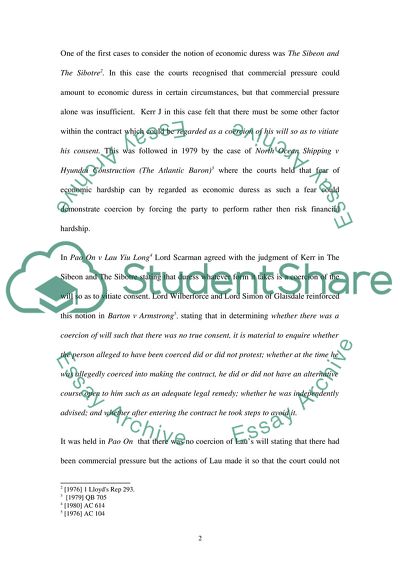Cite this document
(The Operation in the Law of Contract of the Doctrine of Economic Coursework, n.d.)
The Operation in the Law of Contract of the Doctrine of Economic Coursework. Retrieved from https://studentshare.org/law/1544166-describe-and-evaluate-the-operation-in-the-law-of-contract-of-the-doctrine-of-economic-duress
The Operation in the Law of Contract of the Doctrine of Economic Coursework. Retrieved from https://studentshare.org/law/1544166-describe-and-evaluate-the-operation-in-the-law-of-contract-of-the-doctrine-of-economic-duress
(The Operation in the Law of Contract of the Doctrine of Economic Coursework)
The Operation in the Law of Contract of the Doctrine of Economic Coursework. https://studentshare.org/law/1544166-describe-and-evaluate-the-operation-in-the-law-of-contract-of-the-doctrine-of-economic-duress.
The Operation in the Law of Contract of the Doctrine of Economic Coursework. https://studentshare.org/law/1544166-describe-and-evaluate-the-operation-in-the-law-of-contract-of-the-doctrine-of-economic-duress.
“The Operation in the Law of Contract of the Doctrine of Economic Coursework”. https://studentshare.org/law/1544166-describe-and-evaluate-the-operation-in-the-law-of-contract-of-the-doctrine-of-economic-duress.


